1960's Soul
Searing vocals, gritty grooves, and electrifying instrumentation
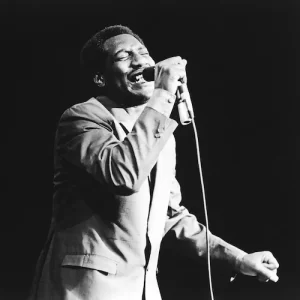
Otis Redding
A defining voice of 1960s soul music, Otis Redding blended raw emotion with powerful vocals that shaped the genre’s sound. Known for hits like “Try a Little Tenderness” and “Respect” (later made famous by Aretha Franklin), Redding brought gospel-rooted intensity and heartfelt delivery to mainstream audiences. He was a standout artist at Stax Records, helping put Southern soul on the map. Redding’s passionate performances, including his legendary Monterey Pop Festival set in 1967, helped bridge racial divides in music. His tragic death at just 26 cut a rising star short, but his posthumous hit “(Sittin’ On) The Dock of the Bay” cemented his legacy as a soul icon whose influence endures.
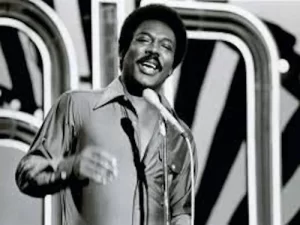
Wilson Pickett
Wilson Pickett was a powerhouse of 1960s soul music, known for his gritty voice, electrifying energy, and unforgettable hits like “In the Midnight Hour,” “Mustang Sally,” and “Land of 1000 Dances.” He helped define the Southern soul sound, especially through his work with Stax and Fame Studios. Pickett’s raw, emotional delivery brought gospel intensity to the pop charts, influencing both soul and rock artists. His collaboration with producer Jerry Wexler and musicians like Steve Cropper created a sound that was both deeply rhythmic and intensely passionate. With his commanding stage presence and hit-making power, Wilson Pickett played a key role in bringing soul music to mainstream audiences and shaping its enduring legacy.
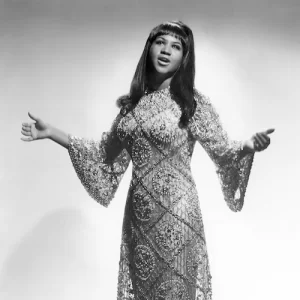
Aretha Franklin
Aretha Franklin, known as the “Queen of Soul,” was a transformative figure in 1960s soul music. Her powerful voice, rooted in gospel, brought unmatched emotion and strength to hits like “Respect,” “Chain of Fools,” and “Think.” With her move to Atlantic Records in 1967, she found her signature sound—combining soul, R&B, and gospel in a way that resonated across racial and gender lines. Franklin’s music became anthems of empowerment during the civil rights and women’s movements. Her vocal style influenced countless artists, and her ability to convey deep feeling made her songs timeless. Aretha didn’t just perform soul music—she defined it, becoming one of the most important and influential voices in American music history.
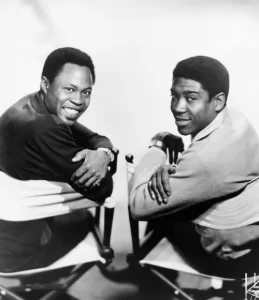
Sam & Dave
Sam and Dave were a dynamic soul duo who brought unmatched energy and gospel-inspired harmonies to 1960s soul music. Known for hits like “Soul Man” and “Hold On, I’m Comin’,” they were key figures in shaping the Southern soul sound at Stax Records. Backed by Booker T. & the M.G.’s and produced by Isaac Hayes and David Porter, their music blended deep grooves, powerful vocals, and emotional intensity. Sam and Dave’s call-and-response style and electrifying live performances made them crowd favorites and influential figures in both R&B and pop scenes. Their music carried themes of resilience and pride, helping to define the spirit of soul music during a time of social change and cultural revolution.
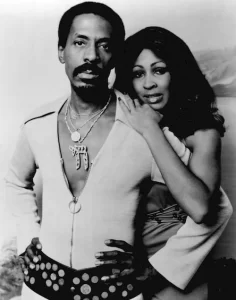
Ike & Tina Turner
Ike and Tina Turner were a powerhouse duo who brought raw energy, fiery performances, and gritty soul to 1960s music. Their explosive stage act and hits like “A Fool in Love” and “River Deep – Mountain High” helped bridge soul, R&B, and rock. Tina Turner’s electrifying vocals and commanding presence, combined with Ike’s sharp musical direction, created a unique sound that stood out in the soul scene. They were especially known for turning soul classics into dynamic, high-energy live experiences. Though their personal relationship was troubled, their musical impact was undeniable—pushing soul music into new, more intense territory and paving the way for soul’s crossover into rock and pop audiences during the late ’60s and beyond.
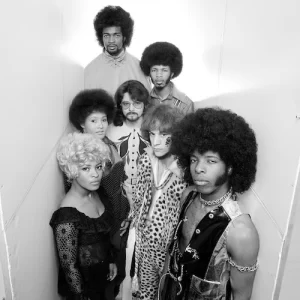
Sly & The Family Stone
Sly and the Family Stone were groundbreaking in 1960s soul music, pioneering a bold fusion of soul, funk, rock, and psychedelic sounds. Led by Sly Stone, the group was racially and gender-integrated—a powerful statement during the civil rights era. Hits like “Dance to the Music,” “Everyday People,” and “I Want to Take You Higher” brought a fresh, socially conscious voice to soul music, blending infectious grooves with messages of unity and empowerment. Their innovative use of electric bass, horns, and layered vocals helped shape the future of funk and pop. By breaking musical and social barriers, Sly and the Family Stone redefined soul music’s possibilities and inspired a new generation of artists across genres.
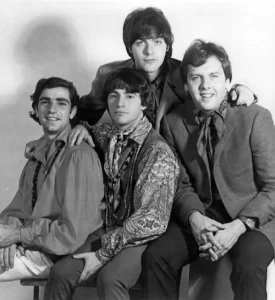
The Rascals (formerly Young Rascals)
The Rascals, originally known as The Young Rascals, were a vital part of 1960s blue-eyed soul, blending rock, R&B, and soul into a fresh, energetic sound. Hits like “Good Lovin’,” “Groovin’,” and “People Got to Be Free” showcased their ability to bring soul music to a broader, integrated audience. Though not from the traditional soul scene, The Rascals respected and were heavily influenced by Black soul artists, and they helped bridge racial gaps in popular music. Their commitment to civil rights and messages of peace and equality gave their music deeper social meaning. By fusing soulful vocals with rock instrumentation, The Rascals helped bring soul music into the mainstream pop world of the late 1960s.

Mitch Ryder & The Detroit Wheels
Mitch Ryder and the Detroit Wheels brought a high-octane blend of soul, R&B, and rock to the 1960s music scene, helping define the sound of “blue-eyed soul.” With gritty vocals and driving rhythms, Ryder delivered explosive performances on hits like “Devil with a Blue Dress On/Good Golly Miss Molly” and “Jenny Take a Ride!” Their music channeled the raw energy of soul through a rock lens, appealing to both Black and white audiences. Hailing from Detroit, a city rich in soul tradition, they bridged the gap between Motown polish and garage rock edge. Their energetic style influenced later rock and soul acts, proving that soul music could thrive in many forms across diverse musical audiences.
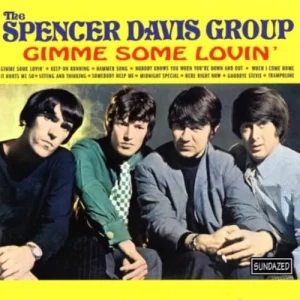
The Spencer Davis Group
The Spencer Davis Group, fronted by a young Steve Winwood, played a key role in bringing soul and R&B influences into British rock during the 1960s. With hits like “Gimme Some Lovin’” and “I’m a Man,” the group delivered soulful vocals, Hammond organ grooves, and a gritty energy that echoed American soul music. Winwood’s powerful, bluesy voice drew comparisons to legendary soul singers, helping to popularize soul sounds among rock audiences in the U.K. and beyond. While not a traditional soul act, the band’s fusion of rhythm and blues with British rock helped pave the way for blue-eyed soul and influenced countless artists. Their success showed soul music’s global reach and its adaptability across genres and cultures.
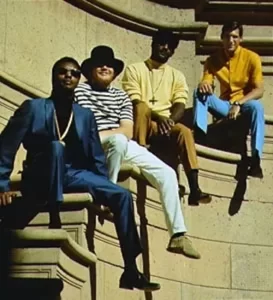
Booker T. & the M.G.'s
Booker T. & the M.G.’s were essential architects of 1960s soul music, serving as the house band for Stax Records. Their tight, funky instrumentals and signature grooves powered countless hits for artists like Otis Redding, Sam & Dave, and Wilson Pickett. With songs like “Green Onions,” they also achieved success as a standalone act, showcasing their ability to blend soul, R&B, and Memphis grit. The band’s integrated lineup—Black and white musicians playing together during a time of racial tension—symbolized soul music’s unifying power. Led by Booker T. Jones on organ and featuring Steve Cropper on guitar, they helped craft the Southern soul sound that defined an era and influenced generations of musicians across genres.